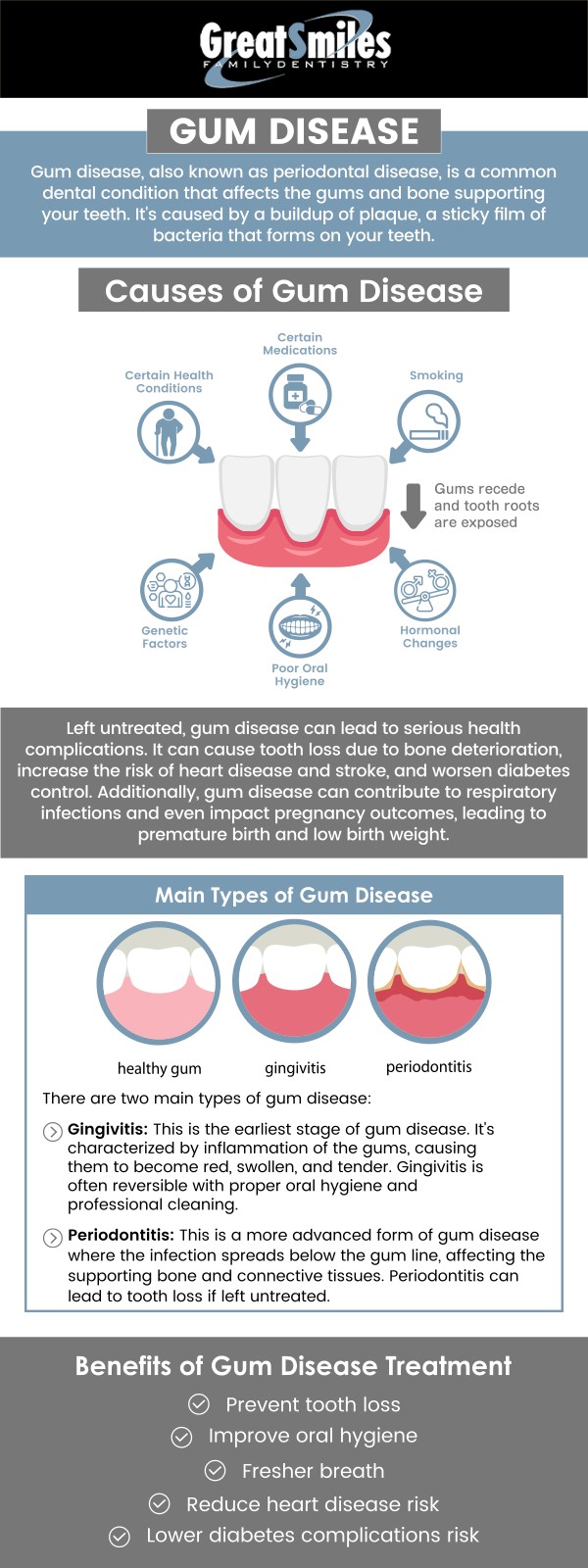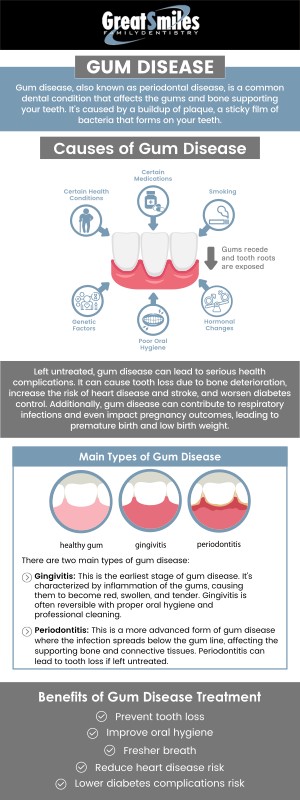Gum Disease Treatment Dentist in Toledo, OH
Gum disease, or periodontal disease, is an infection of the gums caused by plaque buildup. Symptoms include red, swollen, or bleeding gums, bad breath, and gum recession. If left untreated, it can lead to tooth loss and other serious health issues. Dr. Nadeem Khan DDS at Great Smiles Family Dentistry offers gum disease treatment. For more information, contact us today. We are conveniently located at 4646 Nantuckett Dr Suite D, Toledo, OH 43623.





Check Out Our 5 Star Reviews


Additional Services You May Need
- Affordable Dental Implants
- Invisalign
- Invisalign vs Braces
- Dental Implants
- Dentures
- Dentist
- Gum Disease
- Sleep Apnea Appliance
- Sedation Dentistry
- General & Cosmetic Dentistry
- Jaw Muscle and Joint Conditions
- Sports Guards
- Teeth Grinding
- Porcelain Veneers
- Lumineers
- Family Dentist
- Cosmetic Dentistry
- Dental Implant Costs
- Kid Friendly Dentist
- Gingivitis Treatments
- Pediatric Dentist
- Teeth Whitening
- Invisalign Clear Aligner
- Emface
- Exion
- Dental Crown
- Dental Bridge

Additional Services You May Need
- Affordable Dental Implants
- Invisalign
- Invisalign vs Braces
- Dental Implants
- Dentures
- Dentist
- Gum Disease
- Sleep Apnea Appliance
- Sedation Dentistry
- General & Cosmetic Dentistry
- Jaw Muscle and Joint Conditions
- Sports Guards
- Teeth Grinding
- Lumineers
- Porcelain Veneers
- Family Dentist
- Cosmetic Dentistry
- Dental Implant Costs
- Kid Friendly Dentist
- Gingivitis Treatments
- Pediatric Dentist
- Teeth Whitening
- Invisalign Clear Aligner
- Emface
- Exion
- Dental Crown
- Dental Bridge





